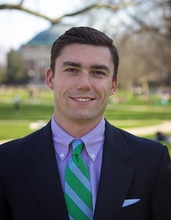AMERICAN POLITICS & PUBLIC POLICY WORKSHOP
Abstract: This project studies how term limits may alter voters’ ability to select good politicians and hold them accountable through changes in challenger entry. By creating frequent and predictable open seat elections, term limits affect challengers’ entry calculus; instead of running against an advantaged incumbent, term limits encourage candidates to delay their candidacy in anticipation of an easier open-seat election. This effect has implications for welfare as voters cannot choose good politicians if they do not run. Further, with a diminished threat of replacement, incumbent politicians may be able to shirk while in office—voters’ ability to hold the incumbent accountable will be weakened if the supply of challengers in elections with incumbents consists of relatively low-quality candidates. To model this setting I adapt the political agency model in Alt, Bueno de Mesquita and Rose (2011) and introduce strategic Challengers to examine the accountability effects of term limits in the presence of strategic Challenger entry. The incumbent chooses how much costly effort to exert while in office, each potential challenger decides whether to challenge or not, and the representative voter either retains or replaces the incumbent. Equilibria are considered in institutional environments with and without term limits.
Collin Schumock is a Ph.D. candidate in Political Science at Yale University. His research interests are broadly in American political institutions, political economy, and the role of money in politics. His dissertation focuses on electoral institutions, and term limits in particular, and studies the impact of term limits on a variety of political outcomes.
This workshop is open to the Yale community. To receive regular announcements, please subscribe at https://csap.yale.edu/american-politics-public-policy-workshop.
